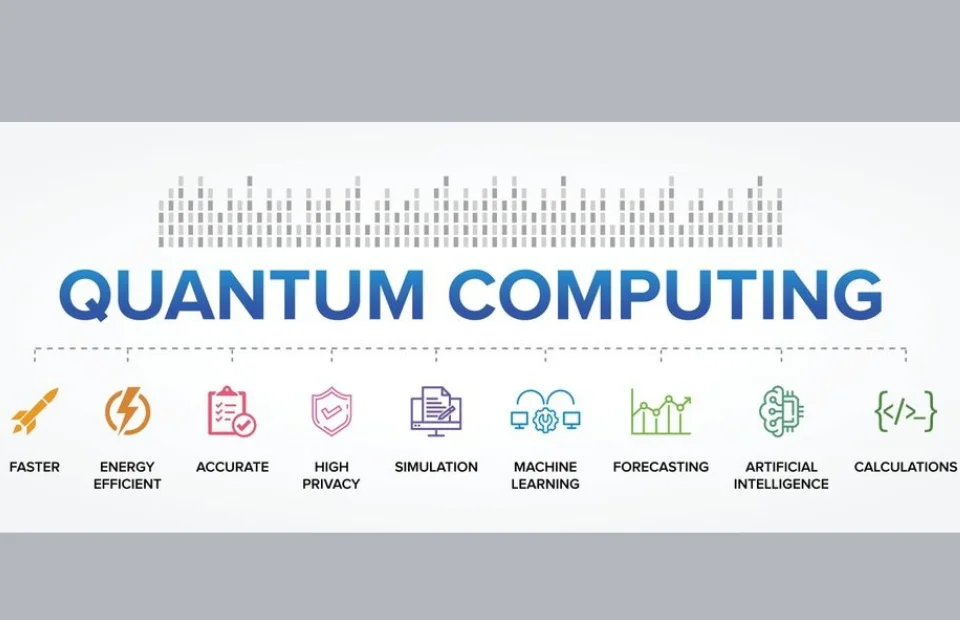Quantum Computing Benefits the Financial Services Industry in multiple exciting ways. This is because Quantum Computers are extremely fast computers. These are even more powerful than supercomputers.
In ordinary computers, we deal with bits that can have only two states 0 and 1 but in Quantum computing there are many possible combinations of these bits available. The bits used in Quantum Computing are called Qubits. Quantum computers are based on quantum computing that observes the behaviour of atoms and particles.
Quantum Computing in Financial Services is growing day by day. In combination with AI, Quantum Computing can produce remarkable outcomes.
Let’s have a deeper dive and understand the benefits of Quantum Computing in the Financial Service industry.
- Risk Assessment in the Financial Service Industry
- High-Level Portfolio Optimization
- Financially Strong Trading Strategies
- Quantum Computing and Cryptography
- Faster Complex Calculations
- Optimization of Machine Learning Algorithms
- Advancements in Quantitative Analysis
- Conclusion
- Frequently Asked Questions on Quantum Computing
Quantum computing could benefit the financial services industry by Improving accuracy and efficiency, Solving specific problems, Analyzing financial outcomes, Analyzing unstructured data, Using pattern recognition.
Risk Assessment in the Financial Service Industry

One of the best applications of Quantum Computing in the Financial Sector will be the detection of risks and Frauds. As technology has advanced the lives of people have been dependent a lot on technology.
This increased use of technology has also increased vulnerabilities. Normal computers can be get hacked. No doubt we have many great cybersecurity experts who can protect our computers but still there’s a chance someone can unwantedly get access to critical data.
On the other hand, it is impossible to hack a Quantum Computer. As it is impossible to hack a Quantum computer, it is also impossible for someone to get access to critical data. In the case of banks and large organizations Quantum Computers are highly beneficial in terms of keeping their finances safe and secure.
High-Level Portfolio Optimization

Portfolio optimization is a financial concept and analytical process that involves selecting the optimal combination of assets to achieve a specific investment goal. In portfolio construction, investors and fund managers need to balance potential returns and associated risks to maximize returns.
Quantum Computers are remarkably expert in predictions and risk assessments. It can analyze millions of combinations in a fraction of a second. The tasks that an ordinary computer takes hours to compute one Quantum Computer can do in milliseconds.
Financially Strong Trading Strategies

Quantum computing can make trading strategies stronger. It’s super fast, helping analyze data quickly and find patterns. It improves how machines learn, making predictions better. They also help simulate different market situations, allowing traders to test their strategies better. They can make long-term planning effectively in seconds.
Quantum Computing has Benefited the Financial Services Industry not only by providing long-term investment plans but it can also by predicting future trends in trading and the impact of various other factors.
Moreover, they protect trading strategies from hacking with advanced security measures
Quantum Computing and Cryptography

Cryptography is the practice and study of techniques for securing communication and information from adversaries or third parties.
The relationship between cryptography and quantum computing in the financial services industry is one of coexistence and adaptation.
As we know Quantum Computing is capable of performing complex calculations in milliseconds so for a Quantum Computer it is also possible to break the complex cryptography algorithms.
As quantum computing advances, financial institutions need to adopt quantum-resistant cryptographic measures to ensure security. Quantum Computers can generate more secure encryption algorithms that are impossible for a human or a normal computer to break. In this way, it can bring a lot of good in the financial sector where we use encrypted algorithms to secure our online transactions and payments.
Faster Complex Calculations

A Quantum Computer having 40 Qubits is equivalent to a super computer.
It enhances the boundaries of computational power in financial analytics. In past, traditional computers face many limitations in processing complex financial models and large datasets. They take more execution time for critical calculations.
On the other hand, Quantum computing which has 40 qubits and works on principles of superposition and entanglement performs a large number of calculations simultaneously. As financial institutions always need faster and more efficient ways to analyze market dynamics and manage risk quantum computing is best in this regard.
Optimization of Machine Learning Algorithms

We use the qubits (quantum bits) concept in quantum computing which gives power to parallel computation and also increases the efficiency of machine learning algorithms.
With the help of quantum computing, all financial tasks are completely transformed. These tasks include fraud detection, pattern recognition and credit scoring. Quantum computing significantly increases and improves speed and accuracy in the financial field to perform many tasks efficiently.
No doubt, Quantum computing enhances our work but we face many challenges it is a complex task to detect and correct errors. Scalability is also one of the major issues in quantum computing. Moreover, we need specialized expertise to use this technology properly in financial applications.
Advancements in Quantitative Analysis
Quantum computing completely changed and redefined the methods and techniques, we used in past for high-level calculations. Advanced quantum algorithms process complex mathematical calculations faster and more accurately. These algorithms perform operations such as risk assessment, pricing models and derivative valuation.
Quantum computing has a great impact on pricing models and risk management. It enhances the accuracy and efficiency in assessing market risks. Quantum computing can perform simulations in real time that allow financial institutions to make more informed decisions and reduce risks effectively.
Quantum algorithms provide more precise valuations which help financial analysts to understand and solve derivative tasks easily.
Conclusion
Quantum computing in finance changes the ways and methods that we use traditionally. This technology makes complex calculations super fast and accurate. With advanced 40 qubits, quantum computing becomes like a supercomputer. Quantum computing also increases security which helps in risk management and also protects important data from cyber threats and hackers.
Quantum computing uses advanced algorithms which enhance security, improving fraud detection and credit scoring. Challenges like error correction need attention, but quantum computing promises a revolutionary change in financial analysis.
Frequently Asked Questions on Quantum Computing
What specific applications of quantum computing are relevant to finance?
Quantum computing could be applied to a wide range of financial tasks, including optimization problems such as portfolio optimization and asset allocation, Monte Carlo simulations for risk analysis, cryptography for secure transactions, and machine learning algorithms for predictive analytics and trading strategies.
How could quantum computing improve risk assessment in finance?
Quantum computing could enable more sophisticated risk assessment models by efficiently processing large datasets and performing complex calculations. This could lead to more accurate and timely risk predictions, helping financial institutions better manage their exposure to market volatility, credit risk, and other factors.
Can quantum computing enhance cybersecurity in finance?
Yes, quantum computing has the potential to strengthen cybersecurity measures in finance by enabling the development of quantum-resistant cryptographic algorithms. These algorithms would be immune to attacks from quantum computers, thereby protecting sensitive financial data and transactions from unauthorized access and manipulation.
What are the challenges and limitations of quantum computing in finance?
Quantum computing is still in its early stages of development, and there are several technical challenges and limitations that need to be overcome. These include qubit coherence and stability, error correction, scalability of quantum systems, and the development of practical quantum algorithms tailored to financial applications.





